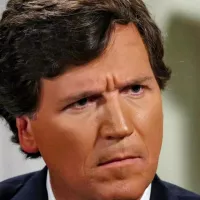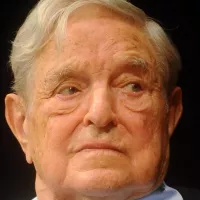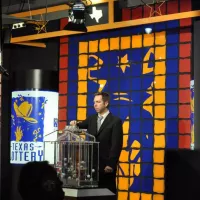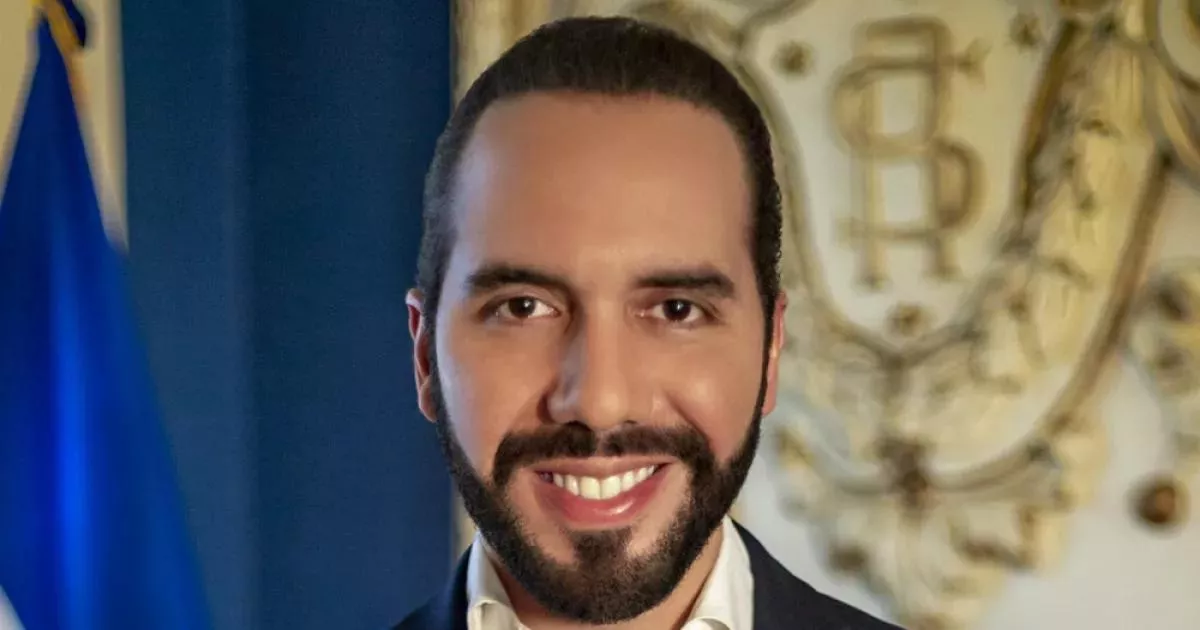How Nayib Bukele built a successful career. Explore key moments that defined the journey.
Nayib Bukele is the current president of El Salvador, serving since June 1, 2019. Prior to his presidency, Bukele was a businessman and politician. He is known for his unconventional governing style and use of social media. Some of his key policies include a crackdown on gang violence and the adoption of Bitcoin as legal tender. Bukele's administration has faced both praise for reducing crime rates and criticism for its authoritarian tendencies and potential human rights violations.
1999: Established an Advertising Company
In 1999, Nayib Bukele established an advertising company. He also worked at his father's advertising company, which was named Armando Bukele Kattán. Both companies advertised election campaigns for the Farabundo Martí National Liberation Front (FMLN) political party.
1999: Founded Obermet Marketing Company
In 1999, Nayib Bukele founded the marketing company Obermet (also known as 4am Saatchi & Saatchi El Salvador).
2004: Political advertising for FMLN Presidential Campaigns
In 2004, Obermet ran political advertising for the FMLN presidential campaigns of Schafik Hándal.
2006: President of Obermet
From 1999 to 2006, Nayib Bukele served as the president of Obermet.
2009: Political advertising for FMLN Presidential Campaigns
In 2009, Obermet ran political advertising for the FMLN presidential campaigns of Mauricio Funes.
2010: President of Obermet
From 2010 to 2012, Nayib Bukele served as the president of Obermet.
2011: Announced Entry into Politics
In 2011, Nayib Bukele announced that he would enter politics as a member of the FMLN.
2011: Entered Politics
In 2011, Nayib Bukele entered politics.
March 2012: Elected Mayor of Nuevo Cuscatlán
On March 11, 2012, Nayib Bukele was elected mayor of Nuevo Cuscatlán with 51.67 percent of the vote.
May 2012: Took Office as Mayor of Nuevo Cuscatlán
On May 1, 2012, Nayib Bukele took office as the country's youngest mayor.
2012: End of Presidency at Obermet and Yamaha Motors El Salvador
In 2012, Nayib Bukele's tenure as president of Obermet and Yamaha Motors El Salvador concluded.
August 2014: Announced Candidacy for Mayor of San Salvador
In August 2014, Nayib Bukele announced that he would seek election as mayor of San Salvador in the 2015 elections, with his candidacy confirmed by FMLN secretary-general Medardo González on August 19.
August 2014: Launched Sphere PM Project
On 27 August 2014, Nayib Bukele launched Sphere PM, a project that launched a high-altitude balloon to an altitude of 100,000 feet (30,000 m) and took pictures of El Salvador, with the goal of promoting science and technology education.
November 2014: Spoke at United Nations Headquarters
In November 2014, Nayib Bukele spoke at United Nations headquarters about projects he had undertaken as mayor of Nuevo Cuscatlán as part of the World Cities Day.
January 2015: Inaugurated Boulevard Connecting Nuevo Cuscatlán
On 21 January 2015, Nayib Bukele inaugurated a $1.7 million boulevard connecting Nuevo Cuscatlán with Huizúcar and Antiguo Cuscatlán.
February 2015: Delegated Administration of Nuevo Cuscatlán
On 10 February 2015, Nayib Bukele delegated administration of Nuevo Cuscatlán to council member Michelle Sol to focus on his campaign for mayor of San Salvador.
March 2015: Elected Mayor of San Salvador
On 1 March 2015, Nayib Bukele defeated Edwin Zamora with 50.38 percent of the vote to become the mayor of San Salvador.
May 2015: Signed Sister City Agreement with Panama City
In May 2015, Nayib Bukele signed an agreement with Panama City mayor José Blandón to establish a sister city relationship between San Salvador and Panama City.
November 2015: Signed Agreement with Spanish National League of Professional Football
In November 2015, Nayib Bukele signed an agreement with the Spanish National League of Professional Football to promote sports for San Salvador's youth.
2015: Democratic Change Party's Performance
In 2015 legislative elections, the Democratic Change party failed to receive over 50,000 votes, which eventually led to its cancellation by the TSE in 2018.
2015: Elected Mayor of San Salvador
In 2015, Nayib Bukele was elected mayor of San Salvador, serving until 2018.
January 2016: Began San Salvador 100% Illuminated Campaign
In January 2016, Nayib Bukele began a "San Salvador 100% Illuminated" campaign to combat crime in the city by having a light on every corner of San Salvador; the campaign was completed by May of that year.
June 2016: Renamed 89 Avenida Norte in Honor of Castellanos
In June 2016, as mayor, Nayib Bukele renamed 89 Avenida Norte in honor of José Arturo Castellanos, who provided fake Salvadoran passports to Central European Jews during the Holocaust.
December 2016: Inaugurated Cuscatlán Market
In December 2016, Nayib Bukele inaugurated the Cuscatlán Market to encourage street vendors to relocate their businesses.
October 2017: Inaugurated Renovated Downtown Gerardo Barrios Plaza
In October 2017, Nayib Bukele inaugurated the renovated downtown Gerardo Barrios Plaza.
October 2017: Expulsion from FMLN
In October 2017, Nayib Bukele was expelled from the FMLN after an ethics tribunal found him guilty of "defamatory acts", "disrespect" for women's rights, and "disqualifying comments" against party members.
October 2017: Presidential Candidacy Announcement
On October 15, 2017, Bukele announced his intention to run for president in 2019 and form a new political party, Nuevas Ideas. He formally announced the party's establishment on October 25, 2017.
2017: Ousted from the FMLN and Founded Nuevas Ideas Party
In 2017, Nayib Bukele was ousted from the Farabundo Martí National Liberation Front (FMLN). Shortly afterward, he founded the Nuevas Ideas political party.
April 2018: Inaugurated New Downtown Lineal Plaza
In April 2018, Nayib Bukele inaugurated the new downtown Lineal Plaza.
July 2018: Presidential Nomination with GANA
On July 29, 2018, Bukele registered with the right-wing Grand Alliance for National Unity (GANA) and received the party's presidential nomination. He selected Félix Ulloa as his vice-presidential candidate.
December 2018: Presidential Debate Absence
In December 2018, Bukele did not attend the presidential debate, claiming that the debate rules were not explained to him.
2018: End of Term as Mayor of San Salvador
In 2018, Nayib Bukele's term as mayor of San Salvador concluded.
2018: FMLN's Poor Performance in Elections
In the 2018 legislative and municipal elections, the FMLN experienced its worst performance since 1994, losing seats in the Legislative Assembly and municipalities. Bukele had called on his supporters to spoil their votes or stay home.
January 2019: Presidential Debate Absence
In January 2019, Bukele did not attend the presidential debate, claiming that the debate rules were not explained to him.
February 2019: FMLN Acknowledges Bukele's Expulsion as a Mistake
In February 2019, Roberto Lorenzana, FMLN presidential communications secretary, stated that Bukele's expulsion was a mistake that cost the party votes.
February 2019: Presidential Election Victory
On February 3, 2019, Nayib Bukele won the presidential election with 53.1 percent of the vote, defeating Carlos Calleja, Hugo Martínez, and Josué Alvarado.
May 2019: Statement on diplomatic relations with Taiwan
In May 2019, Vice President Félix Ulloa stated that Bukele's government would not restore diplomatic relations with Taiwan.
June 2019: Rejection of Nicolás Maduro's presidency
In June 2019, Bukele stated that his government would no longer recognize Nicolás Maduro as the president of Venezuela, instead recognizing Juan Guaidó as Venezuela's legitimate president during Venezuela's presidential crisis.
June 2019: Inauguration as President of El Salvador
On June 1, 2019, Nayib Bukele became the 81st and current president of El Salvador.
June 2019: First Presidential Inauguration
On June 1, 2019, Nayib Bukele's first presidential inauguration was held at the National Palace. He became the 81st and the youngest president of El Salvador at the age of 37. He announced a sixteen-person cabinet composed of eight men and eight women.
June 2019: Territorial Control Plan Announcement
On June 19, 2019, Bukele announced the implementation of a seven-phase security Territorial Control Plan to disrupt gang finances, starting that night at midnight. Phase one involved stationing security forces in municipalities where gangs were known to collect extortion money.
July 2019: Implemented Territorial Control Plan
In July 2019, Nayib Bukele implemented the Territorial Control Plan to reduce El Salvador's homicide rate.
July 2019: Territorial Control Plan Phase Two
In July 2019, phase two of the Territorial Control Plan, known as "opportunity", began, focusing on creating programs and initiatives to prevent youth crime.
August 2019: Territorial Control Plan Phase Three
In August 2019, phase three of the Territorial Control Plan, known as "modernization", began, focused on improving equipment used by the country's security forces.
September 2019: Establishment of CICIES
Bukele established the International Commission Against Impunity in El Salvador (CICIES) in September 2019, an anti-corruption commission.
September 2019: Meeting with Trump
During Bukele's September 2019 meeting with Trump, Bukele called on Trump to promote legal migration and to maintain the United States' temporary protected status (TPS) policy for Salvadorans living in the United States.
December 2019: Presidency Pro Tempore of SICA
From June 5 to December 22, 2019, Bukele served as the president pro tempore of the Central American Integration System (SICA).
December 2019: Meeting with Xi Jinping and signing of infrastructure agreement
In December 2019, Bukele met Chinese president Xi Jinping in Beijing and signed a "gigantic" infrastructure agreement with China for an unknown amount of money.
2019: Presidential Campaign and Promises
During his presidential campaign in 2019, Bukele and a network of YouTubers, bloggers, and internet trolls attempted to discredit ARENA and the FMLN. His campaign promises included combating corruption, developing infrastructure, creating job opportunities, and reducing crime.
2019: Presidential Run Speculation
In 2019, Journalists speculated about Bukele running for president due to his popularity as mayor, despite his initial denials. He later expressed interest with the FMLN, but was not considered. Bukele then portrayed himself as an independent after being purged.
2019: Won Presidential Election
In 2019, after the Supreme Electoral Court (TSE) refused to register his party, Nayib Bukele ran for president with the Grand Alliance for National Unity (GANA) and won with 53 percent of the vote.
February 2020: Agreement with Guatemala on Border Restrictions
In February 2020, Bukele and the Guatemalan government signed an agreement to remove border crossing restrictions between El Salvador and Guatemala and to designate flights between the two countries as domestic flights to promote tourism. The agreement allowed Bukele's government to potentially build a port on the Caribbean Sea in Guatemalan territory, giving El Salvador access to the Atlantic Ocean.
April 2020: Prison Crackdown
In April 2020, Bukele posted photos on Twitter of gang members rounded up in cramped conditions from a prison crackdown.
June 2020: Inauguration of Hospital El Salvador
On 22 June 2020, Bukele inaugurated the Hospital El Salvador, the largest hospital in Latin America used exclusively for treating cases of COVID-19. It had a capacity of 400 beds, 105 intensive-care units, and 295 intermediate-care units staffed by 240 doctors.
November 2020: Refusal to recognize presidency of Manuel Merino in Peru
In November 2020, Bukele refused to recognize the presidency of Manuel Merino in Peru, calling Merino's government "putschist".
April 2021: Inauguration of vaccination center at Hospital El Salvador
In April 2021, Bukele inaugurated a vaccination center at Hospital El Salvador to administer up to 10,000 doses of the COVID-19 vaccine per day.
May 2021: Coalition government formed and Supreme Court justices removed
On 1 May 2021, Nuevas Ideas formed a coalition government and voted to remove the five justices of the Supreme Court of Justice's constitutional court and Attorney General Raúl Melara, replacing them with Bukele's allies.
May 2021: Bukele donated doses of COVID-19 vaccine to towns in Honduras
On 13 May 2021, Bukele donated 34,000 doses of the COVID-19 vaccine to seven towns in Honduras after pleas from their mayors for vaccine doses. El Salvador had received 1.9 million doses at the time, and Honduras had only received 59,000.
June 2021: Bitcoin legal tender bill introduced
On 5 June 2021, Bukele announced at the Bitcoin 2021 conference that he would introduce a bill to the Legislative Assembly that would make bitcoin legal tender. The Legislative Assembly approved the bill three days later. Athena Bitcoin also announced that it would invest $1 million to install 1,500 bitcoin ATMs.
July 2021: Territorial Control Plan Phase Four
In July 2021, phase four of the Territorial Control Plan, known as "incursion", began, with security forces patrolling areas with a high gang presence.
September 2021: Supreme Court rules president can serve two consecutive terms
In September 2021, the Supreme Court of Justice ruled that the president can serve two consecutive terms, overturning a 2014 ruling. This decision, allowing Bukele to run for re-election in 2024, was met with criticism from constitutional lawyers, opposition parties, and the United States government.
September 2021: Bitcoin becomes legal tender
On 7 September 2021, Bitcoin became legal tender in El Salvador, the first country to do so, alongside the United States dollar.
November 2021: Announcement of Bitcoin City construction
In November 2021, Bukele announced that he planned to build Bitcoin City in the southeastern region of La Unión at the base of the Conchagua volcano.
2021: Denouncement of Nicaraguan general election results
Bukele and the Legislative Assembly denounced the results of the 2021 Nicaraguan general election, which were seen by several governments as fraudulent.
2021: Promotion of Surf City
In 2021, Bukele designated part of El Salvador's Pacific coastline in the La Libertad Department as "Surf City" and the country hosted the ISA World Surfing Games.
2021: Bitcoin Became Legal Tender
In 2021, Nayib Bukele passed a law that made bitcoin legal tender in El Salvador and has promoted plans to build Bitcoin City.
February 2022: Accusation of Joe Biden regarding Russian invasion of Ukraine
In February 2022, Bukele accused United States president Joe Biden of "crying wolf" about a Russian invasion of Ukraine.
May 2022: Images of Bitcoin City models published
In May 2022, Bukele published images of models of Bitcoin City and its planned airport on Twitter, saying that the city would have "no income tax, zero property tax, no procurement tax, zero city tax, and zero CO2 emissions".
July 2022: Announcement of the construction of CECOT prison
In July 2022, Bukele announced the construction of the 40,000-inmate Terrorism Confinement Center (CECOT) in Tecoluca, which would be one of the world's largest prisons.
September 2022: Bukele announces he will run for re-election in 2024
On September 15, 2022, during a speech commemorating El Salvador's 201st anniversary of independence, Bukele announced his intention to run for re-election in 2024. This announcement was immediately criticized by constitutional lawyers, who argued that it violated the constitution.
November 2022: Negotiations for free trade agreement with China
In November 2022, Bukele announced that El Salvador and China had begun negotiations for a free trade agreement between the countries.
November 2022: Territorial Control Plan Phase Five
In November 2022, phase five of the Territorial Control Plan, known as "extraction", began. Security forces were ordered to surround cities and extract gang members.
December 2022: Bukele proposes reducing municipalities
In December 2022, Bukele proposed reducing the number of municipalities in El Salvador from 262 to 50, arguing that the current number was "absurd" given the country's size. This proposal was met with both criticism and support, with some viewing it as a power grab and others as a necessary reform.
2022: Abstention from resolutions critical of Nicaragua
Since 2022, El Salvador has abstained from resolutions critical of Nicaragua at the Organization of American States, with Bukele's government citing "non-interference" as justification.
February 2023: Bukele tours CECOT prison
In February 2023, Bukele posted a video on Twitter of him and members of his cabinet touring the Terrorism Confinement Center (CECOT) prison.
June 2023: Legislative Assembly Approved Municipality and Seat Reduction
In June 2023, the Legislative Assembly approved Nayib Bukele's proposals to reduce the number of municipalities from 262 to 44 and the number of seats in the legislature from 84 to 60.
June 2023: Bukele registers as a presidential pre-candidate
In June 26, 2023, Bukele registered as a presidential pre-candidate with Nuevas Ideas, along with Ulloa as his vice-presidential pre-candidate.
June 2023: Bukele announces proposals to reduce Legislative Assembly seats and municipalities
On June 1, 2023, Bukele announced two proposals to the Legislative Assembly: one to reduce the number of seats from 84 to 60, and another to reduce municipalities from 262 to 44. He justified the legislative reduction by referencing the pre-1992 number of seats, and the municipal reduction by stating that the 262 municipalities would retain their cultural identities and be classified as districts.
September 2023: Territorial Control Plan Phase Six
In September 2023, phase six of the Territorial Control Plan, known as "integration", began with the establishment of the National Integration Directory to combat poverty and unemployment.
November 2023: Legislative Assembly grants Bukele leave of absence
In November 2023, the Legislative Assembly granted Bukele and Ulloa leaves of absence to focus on their re-election campaign. The leave went into effect the following day, suspending Bukele's presidential powers. Claudia Rodríguez de Guevara was named presidential designate, becoming the first woman in Salvadoran history to hold presidential power, although her appointment was criticized.
November 2023: Completion of National Library of El Salvador
In November 2023, the National Library of El Salvador was completed as part of infrastructure projects with China.
November 2023: TSE registers Bukele and Ulloa's candidacies
On November 3, 2023, the TSE (Supreme Electoral Tribunal) registered the candidacies of Bukele and Ulloa amidst opposition requests to reject Bukele's candidacy.
December 2023: Law passed for citizenship through Bitcoin donation
In December 2023, the Legislative Assembly passed a law that allowed individuals to purchase Salvadoran citizenship by donating bitcoins to El Salvador.
February 2024: Bukele wins re-election
On February 4, 2024, Bukele won re-election with 84.65% of the vote, becoming the first Salvadoran president re-elected since 1944. Nuevas Ideas retained its Legislative Assembly supermajority and, with its allies, won 43 of the country's 44 municipalities. Several news outlets described the election results as a "landslide victory".
March 2024: Offer to send mission to Haiti
In March 2024, Bukele offered to send a mission to Haiti to "fix" the country's gang war with United Nations Security Council support.
May 2024: Reductions in Legislative Assembly seats and municipalities become effective
In May 1, 2024, the approved proposals for reducing the number of seats in the Legislative Assembly and the number of municipalities in El Salvador, both approved in June 2023, became effective.
June 2024: Bukele states he will not seek a third term
In June 2024, Bukele stated to Time that he would not seek a third term as president of El Salvador.
June 2024: Second Presidential Inauguration
On June 1, 2024, Bukele's second presidential inauguration took place at the National Palace, featuring a military parade. Bukele evoked Simón Bolívar by wearing a Napoleonic-cut jacket and considered the event "the most important moment in our recent history".
September 2024: 2025 government budget announcement
On 15 September 2024, Bukele stated that his 2025 government budget would not include any debt for current spending and that his government would not take out foreign loans to pay for the budget.
October 2024: Agreement to provide soldiers to Haiti
In October 2024, El Salvador agreed to provide soldiers to conduct street patrols and aerial surveillance for the Multinational Security Support Mission in Haiti.
November 2024: Central American Bank for Economic Integration support & Gold Mining
In November 2024, the Central American Bank for Economic Integration announced it would give the Salvadoran government $646 million to finance infrastructure projects. Later that month, Bukele supported mining gold and described the country's metal mining ban as "absurd".
December 2024: Repeal of mining ban
On 23 December 2024, the Legislative Assembly repealed the ban on mining and Bukele approved the law that same day.
2024: Rejection of Venezuelan presidential election results
Bukele rejected the results of the 2024 Venezuelan presidential election as a "fraud" and stated that he would not restore relations with Venezuela unless there were "real elections".
2024: Abstention on OAS resolution to condemn Ecuador
In 2024, El Salvador was the only country to abstain on an OAS resolution to condemn Ecuador for raiding the Mexican embassy in Quito.
January 2025: Amendment of the Bitcoin Law
On 29 January 2025, the Salvadoran government amended the Bitcoin Law to remove bitcoin's status as legal tender and currency but still allows its use as payment.
February 2025: Offer to accept non-Salvadoran deportees from the United States
In February 2025, Bukele offered Secretary of State Rubio to accept non-Salvadoran deportees from the United States, including convicted American prisoners "of U.S. citizenship and legal residents".
March 2025: Deportation of alleged Tren de Aragua members to El Salvador
In March 2025, the United States deported 238 alleged members of the Venezuelan gang Tren de Aragua to El Salvador.
Mentioned in this timeline

Donald John Trump is an American politician media personality and...

Tucker Carlson is an American conservative political commentator known for...

George Soros is a Hungarian-American investor and philanthropist with a...
Fox News Channel FNC is a conservative American news and...
Ukraine is a large country in Eastern Europe second in...
The United States of America is a federal republic located...
Trending

2 months ago Powerball Jackpot Reaches $719M: Winning Numbers Announced November 29th, Check Your Tickets!
3 months ago AI Transforms McKinsey's Business Model and SaaS Pricing Strategies Analyzed.
3 months ago Typhoon Kalmaegi Devastates Philippines: Hundreds Dead, Another Storm Threatens Hope
3 months ago Shanghai: A global coffee hub, witnessing industry growth and viral cafe trends.
3 months ago India-Bangladesh Ties Strained as Hasina Faces Potential Execution; Extradition Unlikely.
2 months ago World Cup 2026 Draw: Brazil in Group C, France's Path
Popular

Kid Rock born Robert James Ritchie is an American musician...
The Winter Olympic Games a major international multi-sport event held...

XXXTentacion born Jahseh Dwayne Ricardo Onfroy was a controversial yet...

Melania Trump a Slovenian-American former model has served as First...

Barack Obama the th U S President - was the...

Billie Eilish is a prominent American singer-songwriter who rose to...
